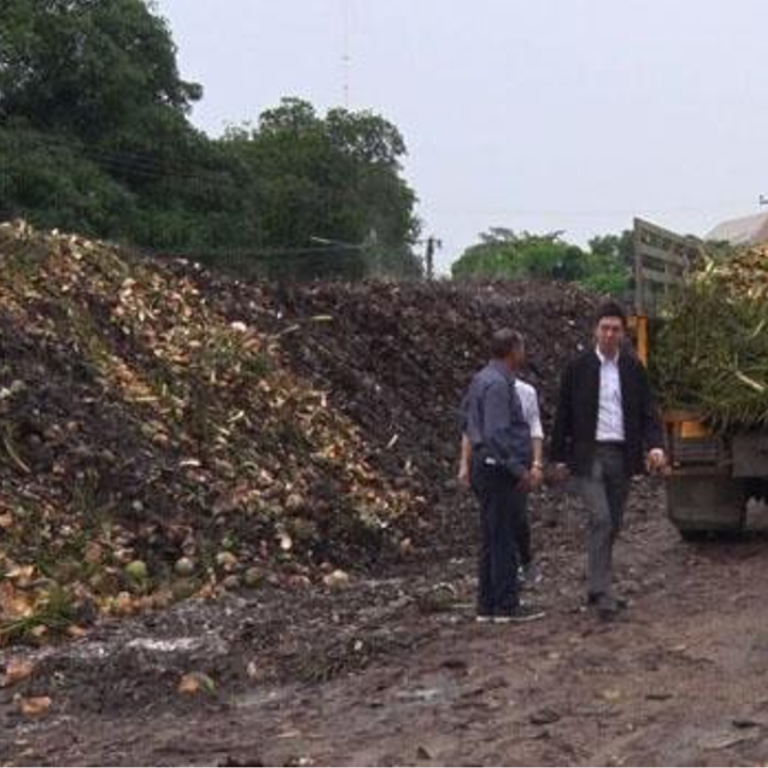
Chiang Mai turning used coconuts into compost
Move tackles the high costs of having to deal with of 10 tonnes of waste in the city each day from discarded coconuts
By Cheewin Sattha
Fragrant young coconuts are a popular drink with local people and tourists in the Thai city of Chiang Mai, but disposing of the emptied nuts has long been a costly problem - until the municipal office recently began recycling them as compost.
About 10 tonnes of the shells and husks of young coconuts are discarded in the district every day after people enjoy the refreshing liquid inside them, usually through straws inserted in a hole cut at the top.
It had been costing the municipality about 30,000 baht (US$903) a month for a contractor to dispose of the waste, according to Asanee Buranupakorn, secretary to the mayor of Chiang Mai.
Burning it would cause air pollution, and burying it would cost the municipal office about 900 baht (US$27) per tonne, he said.
So now, municipal workers are taking discarded coconuts from local markets and communities to Lanna Rama 9 Park in Muang district, where it is being turned into compost, he said.
It takes about six months for the coconuts to decay into compost. This is longer than most raw organic material, because the husks and hard shells rot slowly, Mr Asanee said.
The project started in February and the municipal office has already gathered about 500 tonnes of coconut waste, which is being composted.
When it’s ready, the compost is being distributed free to communities and other municipal units in the province for use in gardens.

